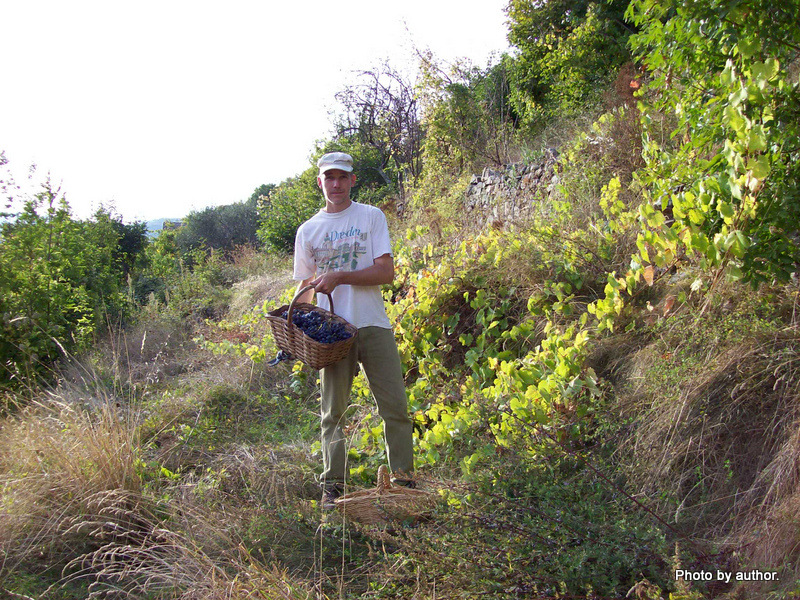Confusing Similarities In Italian Words Posted by Geoff on Apr 25, 2019 in Uncategorized
Italian, confusing? Surely not! 🤔
The convolutions of Italian grammar can be overwhelming, but it’s often the subtleties that can be persistently confusing.
Such as my two pet hates, two little groups of words that still occasionally trip me up after all these years. And I guarantee that they’ll trip you up as well, especially when you come to use them in the plural.
Andiamo a vedere qual è il problema (Let’s see what the problem is):
Group 1. mente – menta – mento = mind – mint – chin
Fortunately, these words are not often used in the plural
the mind = la mente, plural le menti
hai qualcosa in mente per stasera? = do you have something in mind for this evening?
mi è venuta in mente un’idea geniale! = an ingenious idea has come to (my) mind! (I’ve had an ingenious idea!)
the mint = la menta, plural le mente
la tisana di menta è molto rilassante = mint tea is very relaxing
a me mi piace la menta, specialmente la menta piperita = I like mint, especially peppermint
the chin = il mento, plural i menti
mentre mi facevo la barba mi sono tagliato il mento = I cut my chin whilst I was shaving
Paola ha il mento appuntito = Paola has a pointed chin
Group 2. vite – vite – vita – vita = vine – screw – waist – life
These words are particularly confusing because they are frequently used in the plural
the vine = la vite, plural le viti
questa settimana devo potare le viti = I have to prune the vines this week
ho piantato una vite canadese in giardino = I’ve planted a Canadian vine in the garden
the screw = la vite, plural le viti
mi servono delle viti più lunghe per attaccare la mensola al muro = I need some longer screws to attach the shelf to the wall
quanto è lunga questa vite? = how long is this screw?
the waist = la vita, plural le vite
questi pantaloni mi sono troppo stretti in vita = these trousers are too tight around the waist
ho legato la corda alla sua vita = I tied the rope around his waist
the life = la vita, plural le vite
non ho mai visto una cosa così bella in vita mia! = I’ve never seen such a beautiful thing in my life!
dicono che i gatti hanno nove vite = they say that cats have nine lives
Is English this confusing for Italians? Serena will share her thoughts on the subject in our next article.
Ci vediamo quest’altra settimana!
Build vocabulary, practice pronunciation, and more with Transparent Language Online. Available anytime, anywhere, on any device.






Comments:
BW:
oh my, so confusing. I also find confusing those words that have more than one plural, like i muri / le mura, i ossi / le ossa. Are there more?
Serena:
@BW Salve Brad! Scriveremo un articolo su questo, va bene!
Saluti da Serena
MARIA POSILOVIC:
Ciao Geoff: moltissime grazie per questa spiegazione.
Vorrei chiederti un favore, mi puoi spiegare quando il avverbio modifica il verbo e quando modifica la frase? ho molti difficolta per capire questo.
Buon fin de settimana a voi, Serena e i gatti
Serena:
@MARIA POSILOVIC Salve Maria! Non capisco bene la tua domanda quando dici che l’avverbio modifica la frase. Secondo la mia grammatica “l’avverbio serve a precisare o modificare il significato di un verbo, ma anche di un aggettivo o di un altro avverbio”. Per esempio: lavorare male (male è l’avverbio); molto serio (molto è l’avverbio, serio l’aggettivo); molto male (sono tutti e due avverbi).
Ovviamente modificando una parte della frase, specialmente il verbo, l’avverbio modifica anche tutta la frase.
Saluti da Serena
rukmini nini:
Grazie mille per questo lezione.
Patrick:
Grazie mille per tutte le lezioni.
Raffaella:
I do cherish these posts!!! tremendously helpful. Grazie
Art Skinner:
I enjoy this site very much.
Grazie mille
Geoff:
@Art Skinner Grazie a te Art!
A presto, Geoff 🙂
Richard:
Perche’ Dio ci ha creato solo un mento?
Perche’ non poteva fare altrimenti!